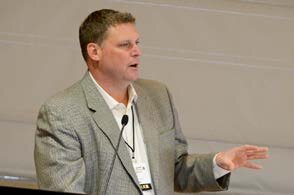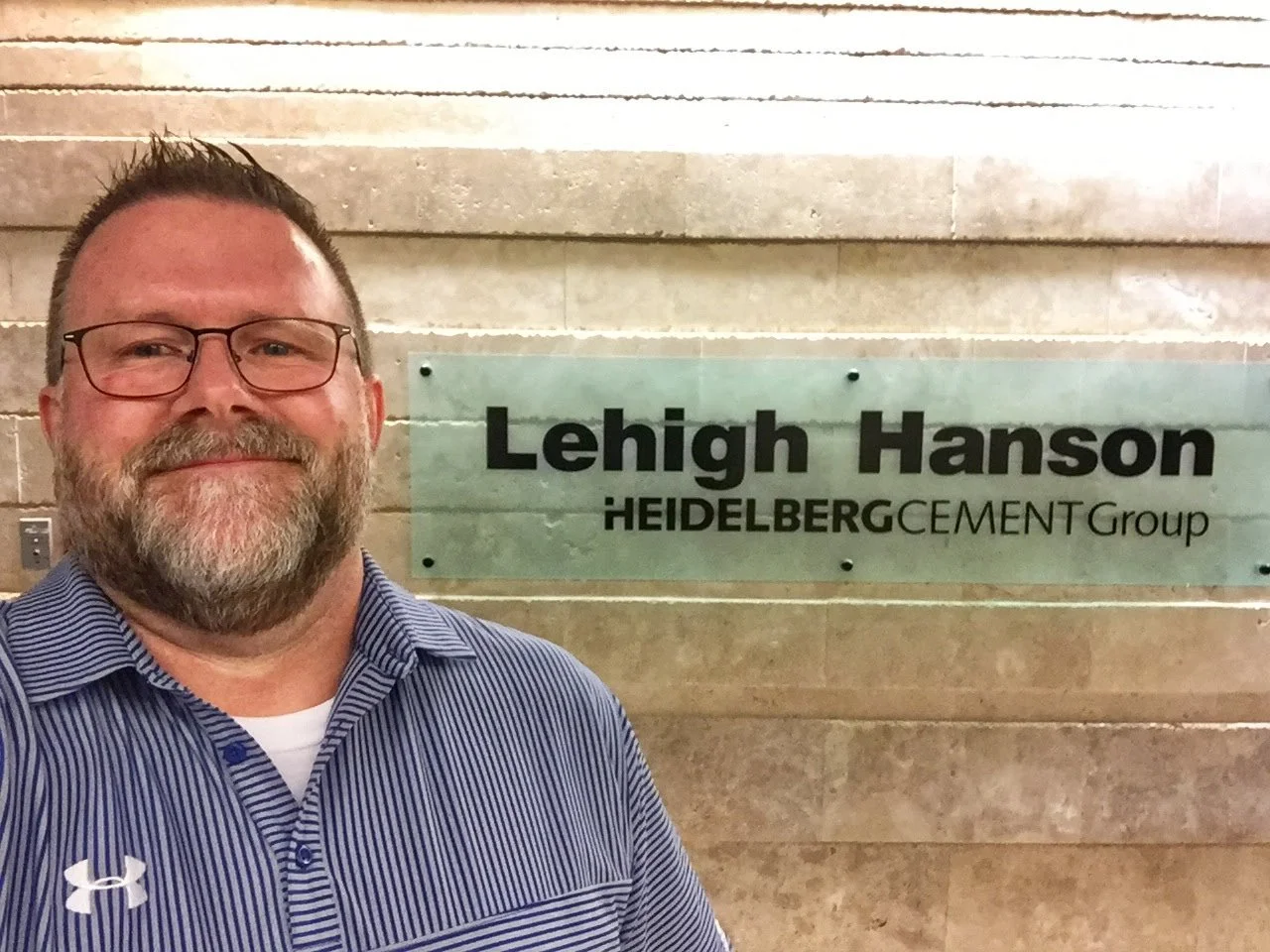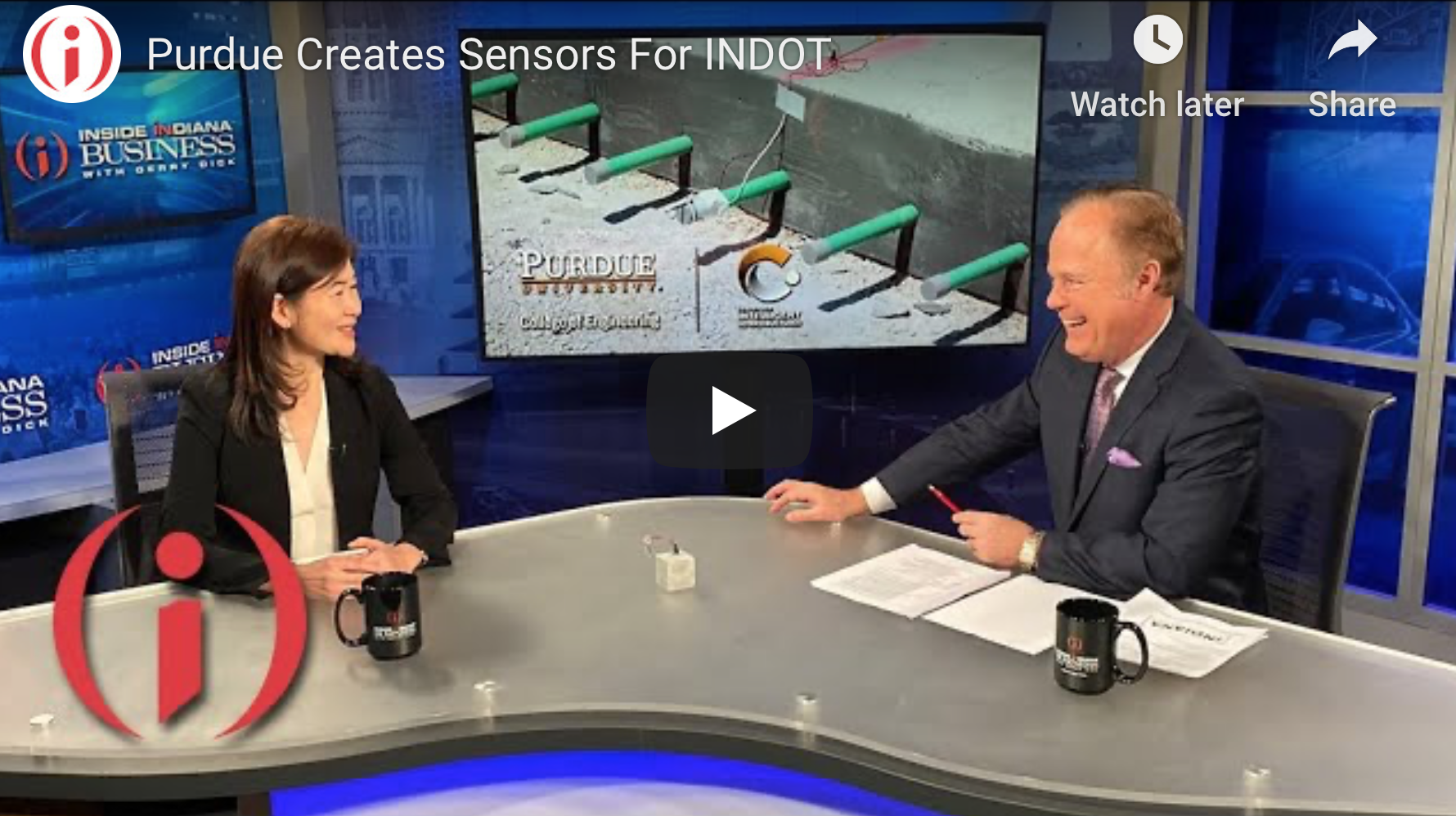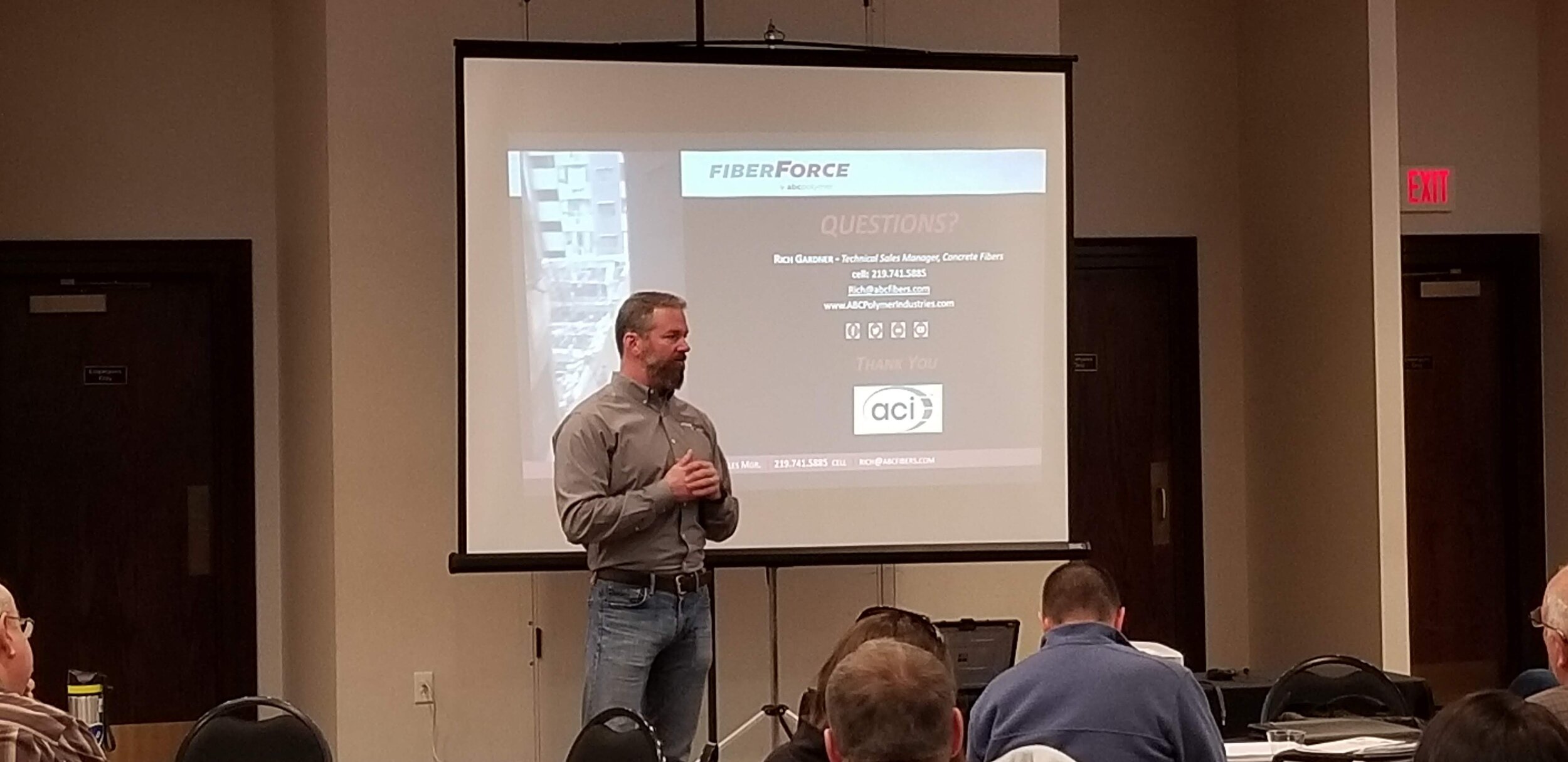
ACI 360: Guide to Design of Slab on Grade
Join us to hear Indiana’s own Christopher Tull, PE of CRT Consulting discuss ACI 360.
Description:
This guide presents information on the design of slabs-on-ground, primarily industrial floors. It addresses the planning, design, and detailing of slabs. Background information on design theories is followed by discussion of the types of slabs, soil-support systems, loadings, and jointing. Design methods are given for unreinforced concrete, reinforced concrete, shrinkage-compensating concrete, post-tensioned concrete, fiber-reinforced concrete slabs-on-ground, and slabs-on-ground in refrigerated buildings, followed by information on shrinkage and curling.
Advantages and disadvantages of these slab design methods are provided, including the ability of some slab designs to minimize cracking and curling more than others. Even with the best slab designs and proper construction, it is unrealistic to expect crack-free and curl-free floors. Every owner should be advised by the designer and contractor that it is normal to expect some cracking and curling on every project. This does not necessarily reflect adversely on the adequacy of the floor’s design or quality of construction. Design examples are given.
Chris Tull
Licenses
Professional Engineer OH, IN, KY, MI LEED AP ®
ACI Level 1 Certified
ICRI Moisture Testing Certified
Experience
30 years of experience in the material, engineering and placement facets of concrete construction. Has considerable knowledge of the industry from working for a large concrete contractor, a construction manager, the Indiana Ready Mix Concrete Association and a ready mix producer.
As Vice President of Production and Quality for a large ready mix concrete company, developed efficient and high quality ready mix operations. Have experience with concrete mix designs, concrete slab-on-grade technologies as well as slip-form concrete pavements.
CRT Concrete Consulting, LLC was founded in February of 2007 and focuses on a relationship- based approach to technical issues. Specialties include items such as:
Developing low shrinkage slab-on-grade mixtures
Planning and integrating finished and polished concrete decorative floors
Slab and pavement design and optimization
Trouble shooting concrete in the field
Creating and implementing concrete related training
Educating engineers and contractors on state-of-the-art design criteria
Generating roller compacted concrete in ready mix facilities
Solutions to concrete slab moisture related issues and testing
Mass concrete thermal plans and temperature control systems
Honors and Affiliations
American Society of Concrete Contractors
American Concrete Institute. Voting member of the following committees:
o 302: Construction of Concrete Floors
310: Decorative Concrete
327: Roller Compacted Concrete
360: Design of Slabs on Ground
American Society of Testing Materials
Member of International Concrete Repair Institute
330: Concrete Parking Lots and Site Paving (Chairman)
332: Residential Concrete Work
Past President of the Indiana Chapter of the American Concrete Association
World of Concrete Speaker
Education
achelor of Science in Civil Engineer g
Cornell University; Ithaca, New York








